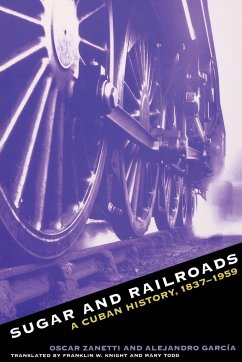Though Cuba was among the first countries in the world to utilize rail transport, the history of its railroads has been little studied. This English translation of the prize-winning Caminos para el azucar traces the story of railroads in Cuba from their introduction in the nineteenth century through the 1959 Revolution. More broadly, the book uses the development of the Cuban rail transport system to provide a fascinating perspective on Cuban history, particularly the story of its predominant agro-industry, sugar. While railroads facilitated the sugar industry's rapid growth after 1837, the authors argue, sugar interests determined where railroads would be built and who would benefit from them. Zanetti and Garcia explore the implications of this symbiotic relationship for the technological development of the railroads, the economic evolution of Cuba, and the lives of the railroad workers. As this work shows, the economic benefits that accompanied the rise of railroads in Europe and the United States were not repeated in Cuba. Sugar and Railroads provides a poignant demonstration of the fact that technological progress alone is far from sufficient for development.
Hinweis: Dieser Artikel kann nur an eine deutsche Lieferadresse ausgeliefert werden.
Hinweis: Dieser Artikel kann nur an eine deutsche Lieferadresse ausgeliefert werden.








